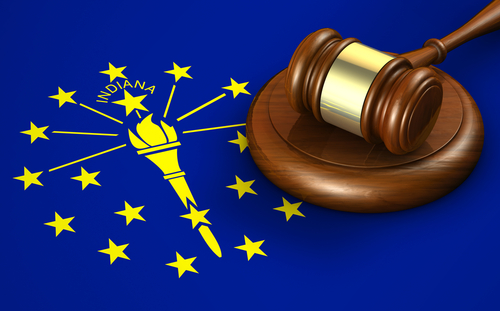ABA Legal Fact Check sorts truth from fiction on legal issues

Photo of Hilarie Bass courtesy of the Office of the President
In an age where we can “Google” almost any question, we are bombarded with so much misinformation that finding the truth can still be a difficult task.
To separate facts from distortions, fact-checking internet sites have grown in popularity in recent years, and several mainstream media outlets routinely verify claims made by newsmakers. But until now, no fact-checking site has focused on verifying claims made about the law and legal issues.
To fill that void, the American Bar Association has launched an initiative called ABA Legal Fact Check at abalegalfactcheck.com. The concept is simple: When it comes to the law, the ABA can and should be the definitive source of information.
After all, the ABA is already a trusted and nonpartisan source on all matters related to the law, with access to legal experts across every specialty.
By focusing on timely legal matters in the news, ABA Legal Fact Check uses established case and statutory law and other legal precedents to separate legal fact from fiction. Relevant experts with experience in applicable areas of the law review each installment of ABA Legal Fact Check for accuracy before the answers are distributed to the media and posted online for the public.
Since ABA Legal Fact Check went live Aug. 17, the site has provided clarification on multiple legal issues, ranging from the constitutional right to refuse to stand during the national anthem to the legal implications of forced evacuations during hurricanes. Controversial issues, such as the legality of presidential executive orders and the constitutional protections for hate speech, have also been addressed in a non-political fashion.
For example, ABA Legal Fact Check recently corrected the statement by Portland Mayor Ted Wheeler that: “Hate speech is not protected.” Legal Fact Check reported that “the U.S. Supreme Court has made it clear that governments may not restrict speech expressing ideas that offend, citing the most recent unanimous 8-0 ruling on June 19, 2017, in Matal v. Tam, known as the ‘Slants’ case.”
The reaction to ABA Legal Fact Check has been encouraging. Since its launch, the site has attracted significant web traffic, indicating widespread interest in its fact-based analyses. Lawyers have written to express their support for the project. A Manhattan attorney praised it as “Great work!” An assistant attorney general wrote: “I applaud the new effort.” And a general counsel commended its broad mandate. “Thank you so much for providing this essential resource to the American people,” she emailed us. ABA Legal Fact Check has also attracted widespread positive attention from the legal press, including stories in publications ranging from LawNewz and Above the Law to law.com and Bloomberg Big Law.
The feedback is great, but it is even more gratifying to know that after a few short months, ABA Legal Fact Check has become an important resource for the media and the public. For example, an Oregon publication picked up Legal Fact Check’s correction of Portland Mayor Wheeler’s statement on hate speech, as did the popular question-and-answer website Quora.
Public education always has been a major priority of the ABA. We want to encourage Americans’ understanding of our laws and of our Constitution, and ABA Legal Fact Check is an extension of that effort. Our ideas for ABA Legal Fact Check installments come from our readers and ABA members. If you have a legal “fact” you would like us to check, or you see a legal controversy you would like us to research, please contact us at [email protected].
The best way to fight misinformation in today’s highly politicized environment is to arm the public with the truth. That is the mission of ABA Legal Fact Check, and we look forward to continuing to provide a resource the public can rely on.
Paris in the Spring
Correction
The print version of the magazine should have stated that ABA Legal Fact Check launched Aug. 17.Follow President Bass on Twitter @ABAPresident or email [email protected].
Link to abalegalfactcheck.com added on Dec. 29.



